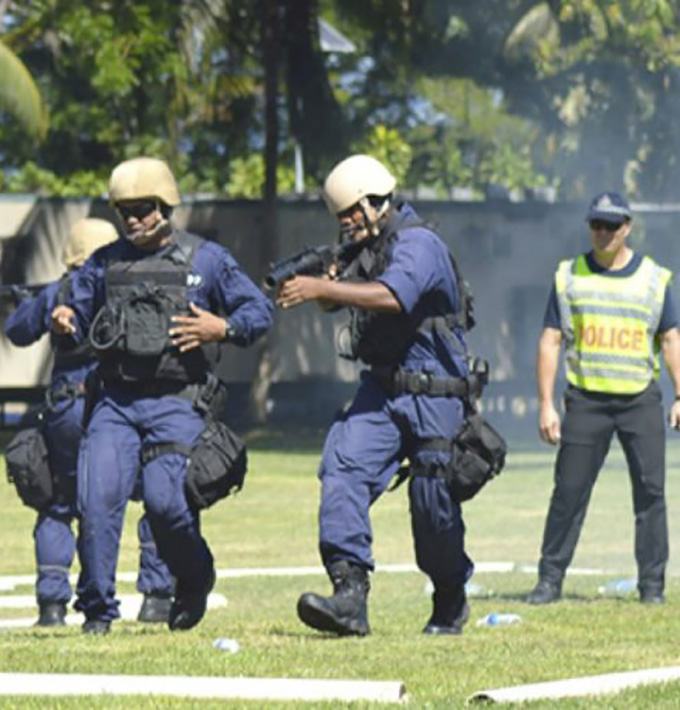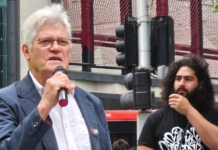
By Lowen Sei
The Solomon Islands police force is facing one of its biggest tests of legitimacy since the withdrawal of the Australian-led Regional Assistance Mission to Solomon Islands (RAMSI) peace-keeping force.
As part of RAMSI’s mission to reduce ethnic violence in the Solomon Islands, guns were confiscated and destroyed across the country.
However, with new reported incidents of gun violence, the Solomon Islands government has taken a decision to rearm the police force.
This has caused mixed reactions from the public, and has generated debate whether this was the right decision.
In June, Prime Minister Manaseh Soqavare opened the new RSIPF National Response Department Building at Rove Police Headquarters containing the armoury. This was the first step in the limited rearmament process of the Royal Solomon Islands Police Force.
The facility will house pistols, shotguns, rifles and ammunitions to be used by three police operational units – the RSIP Police Response Team, Close Personal Protection Team and Internal Airport Police.
Many welcomed the government’s decision, saying that it was the right time to rearm the police force; however, some were still wary of the armoury’s opening – people who were mainly victims of the ethnic tensions.
Police criticised
In February, Nathan Ratu Nukufetau, a community elder from Vanikoro Island, Temotu province, criticised the police about the use of guns to make arrests on the island.
This was in relation to a land dispute incident over logging operations on Vanikoro Island in which several homes were destroyed.
He said that the police actions on the use of guns for the arrest were unprofessional and uncalled for.
“Police are professionals in their job and had been trained when to use excessive force and when not to use it,” he said.
“The incident of the use of guns certainly lost the trust and confidence of the community over the police.”
In his keynote address during the opening of the armoury, the prime minister assured the citizens of the country that there was no need to fear the police.
“I want to make it clear that the personnel who will be bearing arms have gone through a series of specialised and rigorous training, which requires them to use the arms only when the situation becomes critically necessary.
“These officers have trained and are disciplined to use these firearms for protection and for the sake of maintaining law and order in very critical situations, and only as a last resort,” he said.
Accountability rules
He also reiterated that RAMSI had also been heavily engaged with the RSIPF in finalising sets of accountability and governance rules and systems to ensure the arms are used responsibly.
“Let me assure the people of Solomon Islands, that these weapons are police weapons that are used by police forces worldwide.
“That the cabinet will only make a decision on the carriage and use when it is absolutely satisfied with necessary training, storage infrastructure, control systems and governance arrangements are in place.”
Dr Gordon Nanau, a senior Solomon Islands academic at USP, believes that there are two sides two this issue – people are critical about this move, and that the police should be modernised.
He said the debate on police rearmament was due to the past experience that Solomon Islanders had during the ethnic tensions.
“As we all know, during that time guns that were owned by the government were given and taken into the wrong hands,” he said.
People wary
“I think some people are quite wary about the how during the past, the government was not able to fully control the arms, and how it ended up in the hands of the two warring militant parties, because the purpose of arms is to protect the citizens, but in this case arms were used against the people.”
But he also said the police force in the Solomon Islands were also becoming more helpless due to the recent reports of criminals using firearms, which also endangered their lives when carrying out operations and arrests.
He said the proper checks and regulations must be strictly monitored. This would help develop trust in the police force by the public, and this was because a lot of people in the country were still questioning the professionalism of police officers.
Lowen Sei is a reporter with Wansolwara News at the University of the South Pacific, Fiji.













































